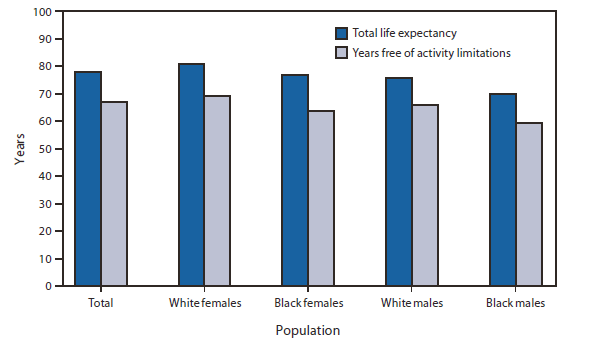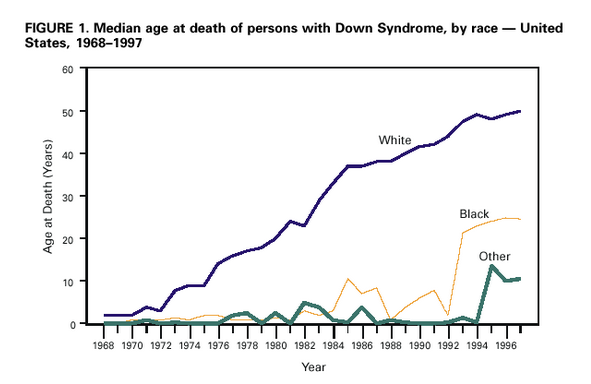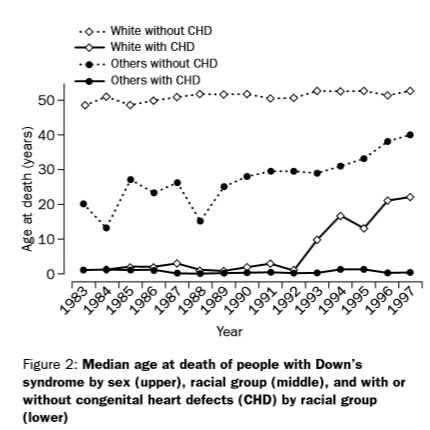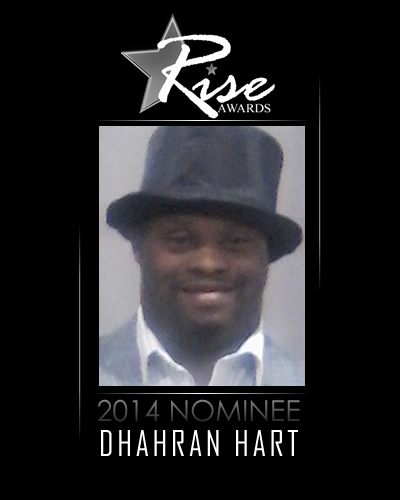Originally posted 3/6/14. Updated 7/16/14 by Stephanie Holland

WHAT’S IN IT FOR ME / US?
If you’re like me, when you see the words “research” and “Down syndrome” together you automatically think about things like, clinical trials, new drugs, and finding a “cure” for Down syndrome.
At this stage in our lives, most of us don’t have room or time left to get excited about things like that. We’re too busy focusing on the here and now – and we love our “kids” for the adults that they’ve grown in to.Until recently – I passed over all the Facebook statuses, Tweets, and news articles that talked about research because I didn’t think they had anything to do with me, my son, or our community.
Putting Pieces Together
A few things happened in succession that got me thinking….First, I read an article posted by fellow “Road Traveler”
Celeste Hart, who is a journalist and mother of “Dude”. In it she talks about a variety of interesting things, but one quote from a “researcher” made my jaw drop.
“The good news is people with Down syndrome are living longer. The expected age used to be around 21, now they’re living until around 60. But, that’s only for Caucasians, not minorities whose rate is around 30 years. We don’t know if it’s due to medical availability, environmental issues or cultural, but it’s something we need to look into,” said Dr. Harpold.
WHat!?!?!?!
Okay now, as Josh would say, “HOLD THE PHONE!”So many thoughts raced through my mind and it was all I could think about for hours/days. My first reaction was – okay, who is this guy and did he make it up? A quick
internet search proved, to my satisfaction, that he is indeed “legit.” My next thought was – Why in the (insert expletive here) haven’t I heard this before? Is this new? So, back to Google I go. What I found next was a graph that added to my confusion.
That right there is scary stuff! AND! The data is from ’68 to ’97. So to answer my previous question – No, this isn’t new. In an attempt to get a better picture of this, I reached out to Dr. Harpold. I didn’t really expect an answer, after all this is a busy guy, but to my surprise I got a response the same day! (Note to self: never hurts to ask, there are still some professionals out there who care)I had asked for his help locating the original study that this information came from and whether or not anything new was available. He said that the original study was published in 2002 and to his knowledge no, there wasn’t anything more recent. He also offered to discuss it further with us – LOVE this Doc already!
Following my Train of Thought
I know, this post is getting a little lengthy, and normally I would stop and re-start later but this is too important. I hope you’ll hang in there with me because I do have a point.So at this point I have a few burning questions. Is there a huge discrepancy like this in the population without Ds:

CDC QuickStats: Life Expectancy and Years Free of Activity Limitations,* by Race and Sex — United States, 2006
According to the CDC, there is a difference, but not nearly as big.So, is it about the heart problems that can come with Ds?
Yang, Quanhe, Sonja A. Rasmussen, and Jm Friedman. “Mortality Associated with Down’s Syndrome in the USA from 1983 to 1997: A Population-based Study.” The Lancet 359.9311 (2002): 1019-025.
The original study Dr. Harpold quoted provided some information on that point – but again, there’s still a considerable, unexplained gap and the information stops at 1997.So what’s happened since then? And again WHY am I just hearing about this NOW? Was I so far out of the loop that I just missed it? Okay, I’ll admit that’s possible, like I said, I haven’t been really interested in “Ds research” for some time. Wait! THIS IS research! So, it’s not JUST about finding a cure. It’s also about finding out why some people are dying much, much, sooner and what we can do about it. (Hmm… shouldn’t somebody be publicizing the stuffing out of something like this? Are our advocacy groups working on this????)
Connecting the Dots
So, the next thing that happened (“what had happened waz”)  while attending a class to prepare me for being a presenter at the upcoming 321 eConference, I met Dr. Melissa Parisi from the NIH who will be presenting, along with others, about the Ds Registry. (You can find out more about her and the sessions she’s involved in on the IDSC conference website under “Presentations” and “Bios”)
while attending a class to prepare me for being a presenter at the upcoming 321 eConference, I met Dr. Melissa Parisi from the NIH who will be presenting, along with others, about the Ds Registry. (You can find out more about her and the sessions she’s involved in on the IDSC conference website under “Presentations” and “Bios”)
Which brings me to another confession – No, I haven’t signed up for the registry and didn’t know much about it. During the class, Dr. Parisi mentioned that she was interested in connecting with parents of adults. I was busy learning the technology at the time, but after class, started putting the two events (and my lack of knowledge) together.
Wouldn’t the registry help in the effort to learn more about the life expectancy differences?
New Information
Since then, I’ve been chatting back and forth with people, trying to wrap my head around this whole gap in my information, so I can help share the word with our community. Then today, the NDSS posted a link on Facebook to a
webpage where they are asking for public comment on the NIH research plan for Ds. Granted, most of it is WAY over my head and deals with biomedical stuff: mice, brains, neuropathways, enzymes, drug treatments, etc. But, there were a few things that interested me like assistive devices for integration into the workplace, home, and community and more research into the link between Alzheimer’s Disease and Ds and yes! the “life expectancy issue” (as I’m now calling it). They’ve even added a new section on “Down syndrome and Aging” that includes the impact of cholesterol disease (and the medicines for it) and the impact on families of caring for adults who have Ds.
More on “The Road”
 As you can see, I’ve been converted. I now think that maybe there is something to this whole “research” thing that I need to pay attention to. I’m guessing I won’t understand most of it – but I do know now that there are people (big, important-type people) who are interested in what we have to say about the whole thing. Thank you so much Drs. Harpold and Parisi for making me feel relevant!
As you can see, I’ve been converted. I now think that maybe there is something to this whole “research” thing that I need to pay attention to. I’m guessing I won’t understand most of it – but I do know now that there are people (big, important-type people) who are interested in what we have to say about the whole thing. Thank you so much Drs. Harpold and Parisi for making me feel relevant!
So, before I close, for now – if you think, after following my journey, that you might be interested too, there are a few things you can do:
And a BIG SHOUT OUT to Celeste for getting me started on this journey – just goes to show what I’ve said for years now (yeah, too many to mention) that we NEVER know how a story we write or tell to others will impact them!
|
|
Visit Celeste and say Thanks! with me:
|
|
This is only the beginning for me – I hope some of you will join me !
Update: 7/16/14
I have continued on my quest to find out more about this topic since I originally posted this article. In fact, I was lucky enough to get to speak with Dr. Harpold at the NDSC conference. We discussed the need for more research in this area and the fact that
Yvonne Maddox was asked to delay her retirement to act as Acting Director of the National Institute on Minority Health and Health Disparities. Dr. Maddox also created the
DS Consortium which launched the Ds patient registry,
DS-Connect.
There is a great deal of work to be done here. I hope you’ll join us in the quest to find out more about why these discrepancies exist and how we might go about addressing them as a community. Stay tuned to our weekly newspaper and Facebook page for more updates.
Stephanie

 while attending a class to prepare me for being a presenter at the upcoming 321 eConference, I met Dr. Melissa Parisi from the NIH who will be presenting, along with others, about the Ds Registry. (You can find out more about her and the sessions she’s involved in on the IDSC conference website under “Presentations” and “Bios”)
while attending a class to prepare me for being a presenter at the upcoming 321 eConference, I met Dr. Melissa Parisi from the NIH who will be presenting, along with others, about the Ds Registry. (You can find out more about her and the sessions she’s involved in on the IDSC conference website under “Presentations” and “Bios”) As you can see, I’ve been converted. I now think that maybe there is something to this whole “research” thing that I need to pay attention to. I’m guessing I won’t understand most of it – but I do know now that there are people (big, important-type people) who are interested in what we have to say about the whole thing. Thank you so much Drs. Harpold and Parisi for making me feel relevant!
As you can see, I’ve been converted. I now think that maybe there is something to this whole “research” thing that I need to pay attention to. I’m guessing I won’t understand most of it – but I do know now that there are people (big, important-type people) who are interested in what we have to say about the whole thing. Thank you so much Drs. Harpold and Parisi for making me feel relevant!






2 thoughts on “Research and Adults who have Down syndrome”
Comments are closed.